Henry Varner had reached the point where he had two
complaints; he was born, and he didn�t have the
courage to kill himself. Every calamity paled after he
accepted these facts. His subsiding into apathy from
frustration with his unsatisfactory life was easily
welcomed.
His parents were grey slabs of people from St. Louis,
who performed their roles in complete obscurity. His
father�s drug store, harbor for his secret shame, yet
birthplace to his visions, was the only demand on his
time when he reached high school. Grammar school had
passed in a mist with no commendations, no criticisms,
no fights and no fumbling in the cloakroom with
budding maidens.
But high school was different.
In Henry�s sophomore year, his father installed a soda
fountain in the drug store, and stationed Henry behind
the soda fountain. Suddenly Henry was in the public
eye. He wilted under the eyes of his classmates, when
formerly he passed in a translucent haze. The
immediate assaults of pleaders for credit, blossoming
socialites who needed recognition, idle young ladies
practicing both flirtations and sneers at his white
cap and jacket nearly overwhelmed him, until he
discovered the secret dream.
The seeds of the secret dream were planted at age
twelve, when Henry began to live on the planet
fantasy. He peopled a heroic world with imperious
tarzans, regal gunfighters and dashing hussars, who
practiced a fumbling sexuality of kisses and rubbing
bodies with exquisite young beauties. At sixteen,
firmly established behind the soda fountain, the
planet fantasy had become more complex. Gone were the
poetic imaginings of Africa, the wild west and the
courts and battlefields of Europe. In their place
melodrama was born. Henry drew his cast from the young
people who patronized him at the soda fountain. He
used the boys he envied as enemies to always be
defeated, and the girls he hopelessly coveted as
beauties to be saved, then scorned, when they
gratefully offered themselves.
Henry managed to build a shallow wall of superiority
from his fantasies that enabled him to face his day to
day life with a minimum of terror, since his foes were
so easily vanquished. But growing sieges battered
great chunks from his defensive wall, as his grey
ineptness became more obvious in his fumblings with
the high school damsels. So in his desperate search
for a bulwark and some relief from the guilt of
midnight masturbations, he discovered Miss Claymore.
Julia Claymore was the pride of a large clan of
Missouri Claymores. All ignorant, uneducated farming
people, they lavished their admiration for �eddecatin�
on this prodigy who had actually studied for a year at
the Art Institute, in Chicago. Rapidly realizing that
she was just one of the vast horde of Midwestern
artists who yearly assailed Chicago, she realistically
evaluated herself as a star of lesser magnitude, then
accepted the first decent teaching post that she was
offered. She invaded the small St. Louis high school
like Grandma Moses returning with her shield. By the
end of her fifth year in the school she convinced
herself that she had renounced a career of greatness
to illuminate the path for promising youth.
Julia Claymore devoted herself to the discovery of
talent. She actually knew little about art, but being
decisive in her role as illuminator, she became as
glib as a salesman. Any student who could draw a
straight line was promised the ultimate fame of Da
Vinci, Michelangelo and Renoir (she had thick books
about Da Vinci and Michelangelo, and there was rumoured
to be a Renoir somewhere in St. Louis), if they would
only obey her directions.
Each term she managed to tempt one or two innocents
into becoming famed artists, never giving up her dream
to launch some genius and bask in reflected glory. She
never discovered what happened to her prot�g�s after
they left the nest, because by the time their hopes
were defeated, there was not even the shaft of venom
left to hurl at that fool teacher who led them to
disaster. So Julia Claymore worked on and waited for
her pupils to find the light.
Henry had developed the habit of drawing costumes for
the characters in his fantasies during Miss Claymore�s
art classes. He kept his sketches in a loose-leaf
notebook that he always carried with him. One day he
was summoned to his grade advisor�s office during his
art class and he left the notebook on his desk. Miss
Claymore, peering at the work her students were doing,
paused at Henry�s desk and idly flipped open his
notebook. On seeing a sketch of an elaborate evening
gown she curiously turned a few pages, uncovering more
attempts at costume design. She immediately decided
that the hitherto unnoticed hunk of protoplasm, Henry
Varner, a vague reference in her record book, would
become an eminent fashion designer.
Henry returned to class, unaware of the revolution
that had taken place in his life. He timidly said:
�Yes, Miss Claymore,� when he was requested to see her
after class. The sudden sign of recognition made Henry
apprehensive, since he had always avoided contact with
his teachers.
After class, Miss Claymore, beaming at her newest
discovery, asked Henry why he never showed her his
attempts at design. Henry, thrown into complete panic
and confusion, tried to deny this onslaught into his
fantasies. But Miss Claymore insisted that his light
must illuminate the world, so he helplessly placed
himself in her hands. Miss Claymore�s hands decided
that Henry�s future development would be a secret
nurtured between them, until his glorious abilities
captured the attention of the civilized world.
Henry went to work that afternoon at the soda fountain
in a trance. During that day he forever closed the
dream of melodrama and tasted the first fruits of
creative ambition. The watchword of Henry�s life
became. �When.� When I am famous�.When I am
recognized�.When I am rich�.When I am loved�.New power
came to Henry. He looked at the boys and girls who
clustered around the fountain with disdain, vowing
that they would all realize someday that they could
have been his friends, if they had only been smart
enough to recognise his genius.
Every spare moment in the daytime Henry was in the
library, reading everything he could find about
fashion design. He walked the streets with pad and
pencil, maniacally sketching every helpless female he
passed. Many stared in resentment at his rude
interest. One woman complained to a policeman that a
crazy young man was drawing dirty pictures of her. But
even this degradation was survived by the passion of
burning creativity.
At night, after Henry�s parents
retired to their room, he filled notebook after
notebook with styles looted from a thousand magazines,
and from women that he saw in the street.
Henry�s next two years in high school passed with a
routine sameness: school, working at the soda
fountain, sketching constantly and secret
confabulations with Miss Claymore, who dangled fame
and fortune like a carrot before a donkey. So the time
passed, and Henry worked and Miss Claymore schemed and
gloated about Henry�s glories to come.
One month before graduation, Miss Claymore realised
that another disciple was about to leave her and enter
the incommunicable world that had devoured all her
previously launched pupils. She decided that she had
suffered enough ingratitude and that just once her
heroic efforts for her �bringers of the new
renaissance� should be appreciated. After many hours
of threatening, pleading and offering tantalising
hints of recognition, Henry was convinced that he must
allow her to sponsor a school showing of his designs.
Students were conscripted from the art class and under
Miss Claymore�s artistic direction, plastered the
entire school with Henry�s sketches. Parents, faculty
and students were cordially invited to attend the
premier that would launch a great man�s career. And
here began the real tragedy of Henry Varner. Not one
person who attended the exhibit had the faintest idea
if Henry�s work was good or bad. So for reasons such
as the school had never had a true genius, no one
wanted to appear ignorant before his peers, and
certainly no one wanted to hurt Henry�s feelings,
Henry was hailed as the greatest innovation since
brassieres.
Henry�s salvation of retiring to the obscurity of the
soda fountain and his melodramas was completely
demolished by the wine of praise. He confronted his
parents under the influence of fame�s first embrace
and declared that he was going to New York, to make
himself available to the finest shops, destitute
without his wondrous talents. His parents, utterly
routed by this ferocious onslaught on their grey
lives, suggested that he remain in the security of the
drugstore. When Henry�s face changed from white to
red to dangerous purple, they surrendered and gave him
train fare to New York.
Many of Henry�s classmates gathered at the railroad
station to bid farewell to the brave genius who would
conquer the world. While Henry was getting on the
train, ticket in hand and cardboard valise in the
other, Miss Claymore sat in her tiny office in the art
department, rubbing her hands in delight at the
swollen prestige her departing pupil had brought her.
Henry�s trip to New York was uneventful. Although it
was his first trip away from home, he was oblivious to
the wonders of the unknown land that the train passed.
All his waking moments were spent listening to the
secret whispers of the wheels, promising fame, fame,
fame�
When the train arrived at Grand Central Station,
in New York City, Henry, carried by his blind belief
in destiny, didn�t experience the fear and confusion
that assailed most adventurers on reaching the fabled
city. He passed through the station as if he arrived
in New York every day, got into a taxi, and ordered
the driver to take him to a cheap hotel. The cab
passed towering buildings, dazzling theatre marquees,
and crowds of scurrying people, but Henry sat, swollen
and pompous, ignoring the tantalizing glimpses of the
city.
The driver took him to Broadway in the seventies and
left him at a hotel fallen on decayed gentility. He
drove off mumbling, when Henry, ending his first taxi
ride, neglected to tip him. He entered the hotel,
registered for seventy dollars a week, was led to a
tiny cubicle that contained one green, pock-marked,
iron bed, one green, pock-marked, iron dresser, one
straight-backed wooden chair, one porcelain sink
spattered with rust and a tiny metal closet, painted
the same bile green as the walls and ceiling.
The room, a suitable crypt for Edgar Allen Poe, was
viewed with delight as Henry�s first place of his own.
His room at home had been three times larger, light
and airy, but that was forgotten in his enchantment at
being in the city. The valise was left unpacked on the
bed, while he looked up the addresses of the foremost
fashion houses and shops in the phone book. He knew
that they were just waiting for his wondrous talents
to appear. Then he went downstairs to a nearby
restaurant.
Dinner passed in a mystic haze, as Henry devoured the
poetry of the names and addresses of the fabled shops,
so long a vision, now about to become a reality. He
returned to the hotel, acknowledged the salute of the
desk clerk with the aplomb of a jaded magnate, entered
his room, quickly unpacked and went to bed.
Henry awakened at 8:00am, soaped his hands, rinsed
his face, squeezed two or three prominent blackheads,
cleaned his teeth with hot water and his right index
finger, combed his straight black hair, dressed in his
good blue suit, then went out into the new world. By
3:00pm, having had his services rejected by a dozen
shops, frequently with scorn and derision, he began to
wonder if he was going about things properly.
Henry
walked uptown along Central Park West, completely
immersed in a fantasy. His envious friends in St.
Louis had written to all the good designers in New
York, warning them that he was coming. Fearing to be
eclipsed, they decided not to give him the opportunity
to show his ability.
He had dinner in the same restaurant as the night
before, a small, steamy Chinese dungeon, crammed with
shabby diners and hurrying waiters in grimy grey
jackets, who were short, muscular and looked like Tong
hatchetmen. With about the same knowledge of life in
New York as life on Venus, Henry accepted everything
he saw with complete equanimity, only disturbed by the
day�s rejections.
The next day, Henry tried the leading fashion houses
with the same results, though perhaps he was treated
with more contempt. But at the last stop, a
sympathetic receptionist suggested that he try to get
a position as a stock boy or shipping clerk, until he
became experienced. Henry, still believing the myth of
immediate fame, spun far from the battlefield in the
security of a St. Louis high school, dismissed this
advice without a moment�s hesitation. He vowed that he
would find some way to present his sketches to the
leaders of the fashion industry, who were kept in
ignorance of his existence by jealous competitors.
One week passed in a desperate, futile pilgrimage to
every known fashion house and shop, without success.
Henry had the first glimmers of realization that New
York might not be immediately conquerable. His money
was beginning to run out, so he decided to take a job
as a stock boy, or anything else that he could find in
the fashion industry. Another week passed without his
finding a job, but he overheard a conversation about
employment agencies, and decided to go to some. The
first agency he tried found him a position as an
assistant buyer trainee in a resident buying office,
at $125.00 a week.
The first week of work was excruciating torment. Henry
had grown up a victim of the myth of the sweetness of
women, with the exception of a few pert girls, who
would certainly mellow with time. His new office was
nothing like that. The women warriors of Hembel &
Drang, Inc., occupant of three floors on west 36th
street, were born for conflict. Even more profane and
aggressive then men, they had no hesitation in
screaming, cursing and abusing anyone who appeared on
the horizon. He walked timid and fearful through the
howling jungle of berserk women.
He reached the heights of terror and shame when the
merchandising manager, Miss Gorter, an angelic looking
old lady, who reminded him of his paternal
grandmother, came charging out of her office like an
insane fury, yelling: �Doris, you dirty bitch, where
are you?� over and over, until Doris, one of her
assistants, was discovered cowering in the ladies�
bathroom. Henry returned to his hotel that evening in
a comatose shock, stunned by the revelations of
woman�s character. Yet that night he managed to write
an arrogant, boasting letter to his parents.
�Dear Mom and Dad,
New York�s sure a swell place. I�ve made all kinds of
slick friends, who really like me, even a few girls.
I�ve been looking around trying to decide where I want
to work, but I haven�t made up my mind yet.
Everybody�s really been swell to me, taking me to
parties
and all sorts of places where I�ve met a lot of famous
people. How�s everyone at home? Say hello to everyone
for me, and tell them that I�m really making out fine.
Please write to me.
Your son,
Henry"
Then to bed and a night of dreamless sleep, bewildered
awakening, weekend spent alone, walking, eating,
staring at the forbidding face of the city.
Henry�s life in the great city became a dreary
routine; work, eat, sleep. He lost all interest in his
sketches, lost forever the myth of fame and lost the
fanatical determination to succeed. His job lasted
exactly three weeks. On a Friday, that turned out to
be his last day, they fired him. They told him that he
just didn�t have enough drive and he couldn�t succeed
as a buyer with such a mopey attitude. He left, pay
check in hand, wondering what to do next. He knew that
after his proud departure he could not return to St.
Louis, but no other options seemed clear.
Henry went home to the tawdry hotel and the desk clerk
reminded him that the rent was overdue. He went up to
his room feeling trapped and alone. He sat by the
window that looked out on an airshaft opposite a room
as seedy as his. Despair rolled over him like a
languid wave, breaking on a crumbling shore. He
couldn�t go back, yet he didn�t see how he could stay.
Henry determined to decide his fate in the morning. As
he drifted off to sleep, vague images of home floated
through the mind. The last thing he remembered was
reaching towards the soda fountain, to mix a drink,
but he never got there.
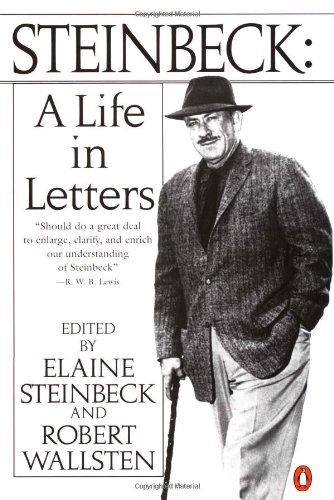 JOHN STEINBECK
JOHN STEINBECK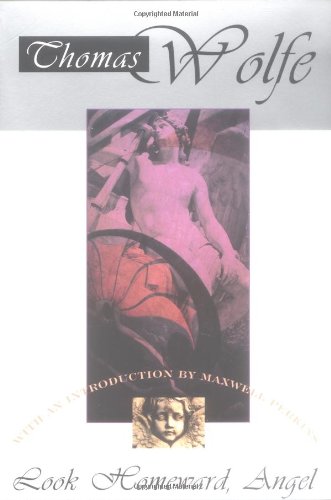 THOMAS WOLFE
THOMAS WOLFE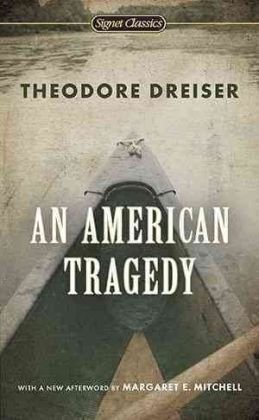 THEODORE DREISER
THEODORE DREISER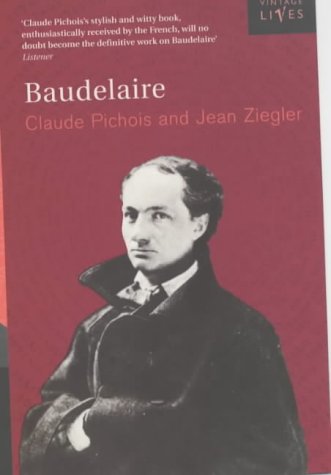 CHARLES BAUDELAIRE
CHARLES BAUDELAIRE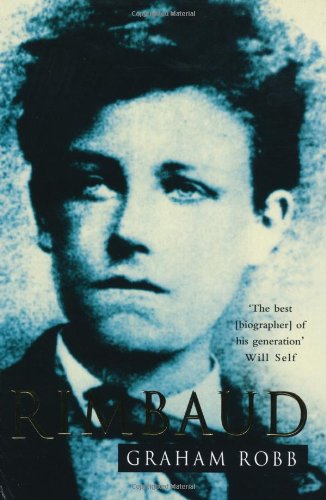 ARTHUR RIMBAUD
ARTHUR RIMBAUD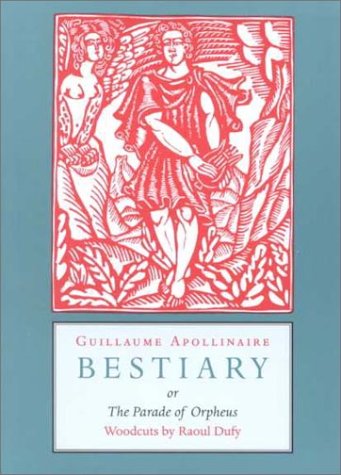 GUILLAUME APOLLINAIRE
GUILLAUME APOLLINAIRE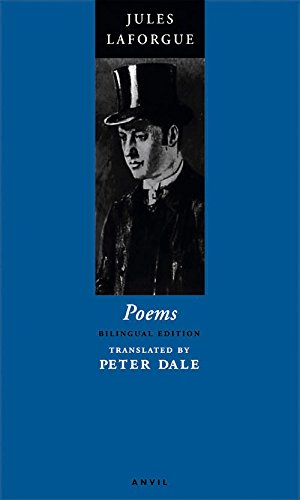 JULES LaFORGUE
JULES LaFORGUE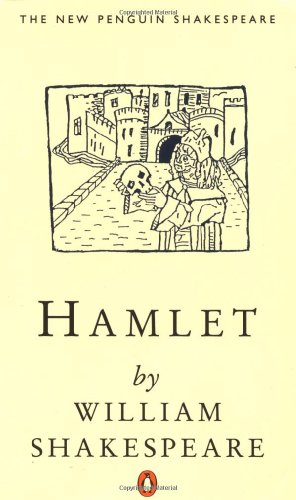 HAMLET - William Shakespeare
HAMLET - William Shakespeare MACBETH - William Shakespeare
MACBETH - William Shakespeare THE ICEMAN COMETH - Eugene O'Neill
THE ICEMAN COMETH - Eugene O'Neill
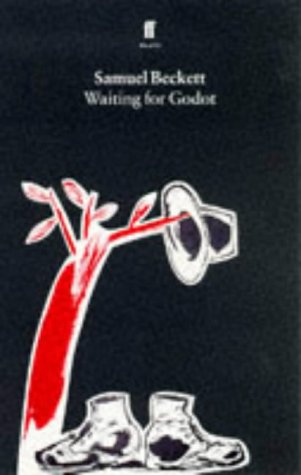 WAITING FOR GODOT - Samuel BeckettClick image to visit the Samuel Beckett Endpage website; for the Samuel Beckett Online Resources and Links page, click here or for related items on Amazon, click here
WAITING FOR GODOT - Samuel BeckettClick image to visit the Samuel Beckett Endpage website; for the Samuel Beckett Online Resources and Links page, click here or for related items on Amazon, click here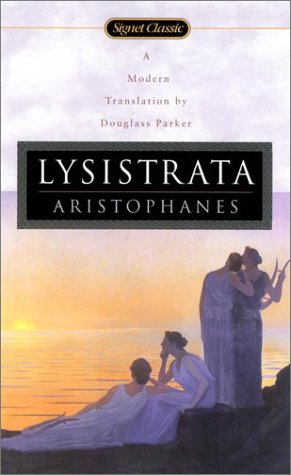 LYSISTRATA - Aristophanes
LYSISTRATA - Aristophanes
 WASSILY KANDINSKY
WASSILY KANDINSKY MARK ROTHKO
MARK ROTHKO DIE WALK�RE - Richard Wagner
DIE WALK�RE - Richard Wagner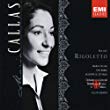 RIGOLETTO - Verdi
RIGOLETTO - Verdi LOHENGRIN - Richard Wagner
LOHENGRIN - Richard Wagner CARMEN - Bizet
CARMEN - Bizet TRISTAN AND ISOLDE - Richard Wagner
TRISTAN AND ISOLDE - Richard Wagner
